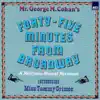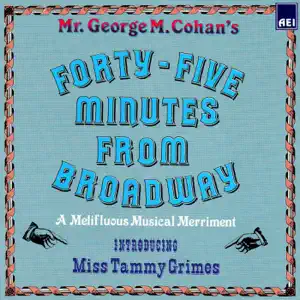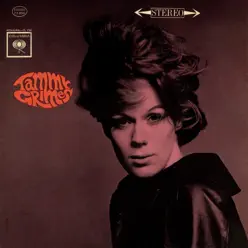


CIUDAD NATAL
Lynn, MA
NACIMIENTO
30 de enero de 1934
Acerca de Tammy Grimes
Tammy Grimes was a veteran actress and singer with a long list of credits in theater, film, and television. For purposes of musical and recording work, her primary efforts were appearances on a series of cast albums, notably The Unsinkable Molly Brown, which preserves her Tony Award-winning performance, and many children's and audio book recordings.nn Often thought to be British, Grimes was in fact an American who owed her accent to her birth into a prominent New England family, though the unique husky timbre of her voice was her own. Her father managed a country club, and she was a debutante who came out into Boston society at age 17. She wanted to become an actress, however, and studied drama at Stephens College in Missouri, then went to New York, where she continued her training at the Neighborhood Playhouse School of the Theatre. She first stepped on a Broadway stage as a replacement for Kim Stanley in the starring role in the drama Bus Stop in 1955. An early television appearance came in "The Bride Cried," an episode of The United States Steel Hour, on August 17, 1955. She got her first chance to display her musical abilities in the off-Broadway show The Littlest Revue (May 22, 1956), which ran 32 performances and had a cast album released by Epic Records. The Littlest Revue was still running when she appeared in the television musical Holiday on NBC on June 9, 1956. That August, she married Canadian actor Christopher Plummer. Their daughter, Amanda Plummer, was born March 23, 1957. Like both of her parents, she went on to become a Tony Award-winning performer. Grimes divorced Christopher Plummer in April 1960. She was later married to actor Jeremy Slade and to musician Richard Bell.nn Grimes was part of The Amazing Adele, a Broadway-bound musical that closed out of town in December 1956. She returned to television in another original musical, Richard Adler's The Gift of the Magi, broadcast on CBS on December 9, 1958. Her appearance in a 1959 TV production of George M. Cohan's Forty-Five Minutes from Broadway was recorded and later released on a soundtrack album by AEI Records. Noël Coward personally cast her in his play Look After Lulu (March 3, 1959), which marked her Broadway debut in a role she originated. It ran only five weeks, but she won a Theatre World award for her performance. She continued to appear on television, co-starring in the variety special "Four for Tonight" on NBC's Star Parade with Cyril Ritchard, Beatrice Lillie, and Tony Randall on February 24, 1960, and in a 1960 TV production of the 1957 Broadway musical Shinbone Alley that was recorded and later issued by Sound of Broadway Records, along with the show Shangri-La. But her greatest success came with her casting in the title role of Meredith Willson's follow-up to his Broadway hit The Music Man, The Unsinkable Molly Brown (November 3, 1960). The show ran 532 performances, and Grimes won the Tony Award for supporting or featured actress in a musical. The Unsinkable Molly Brown was recorded by Capitol Records for a cast album that reached the Top Ten and remained in the charts almost a year.nn The recognition Grimes achieved with The Unsinkable Molly Brown translated into more Broadway stage work, notably the drama Rattle of a Simple Man (April 17, 1963), and guest appearances on TV series (e.g., The Andy Williams Show, November 15, 1962; The Virginian, January 9, 1963; Route 66, October 18 and December 13, 1963; Destry, February 14, 1964). She starred in her second Broadway musical with High Spirits (April 7, 1964), an adaptation of Noël Coward's comic play Blithe Spirit, with songs by Hugh Martin and Timothy Gray. It ran for 375 performances, and the cast album, released by ABC Records, made the Top 20.nn Her stardom further burnished by her success in a second Broadway musical, Grimes was offered her own television series, and the situation comedy The Tammy Grimes Show premiered on ABC on September 8, 1966. Unfortunately, it earned disastrous ratings and was canceled after only four episodes. While on the West Coast for the series, she appeared in her first motion picture, Three Bites of the Apple, which opened in May 1967, and in a 1967 Los Angeles stage production of the revue The Decline and Fall of the Entire World as Seen Through the Eyes of Cole Porter, which was recorded live and later released by Painted Smiles Records. Then she returned to New York and to Broadway in the play The Only Game in Town (May 20, 1968). The following year, she appeared in a revival of Noël Coward's play Private Lives that won her a second Tony Award for actress in a drama, making her one of the few performers to win Tonys in both musical and dramatic categories.nn By 1970, Grimes, in her mid-thirties, was established as a versatile actress, perhaps most at home on-stage, but also a popular choice for character parts on television and in films. During the '70s, she returned to Broadway in the revue A Musical Jubilee (November 13, 1975) and Neil Simon's comedy California Suite (June 10, 1976), as well as taking a turn as Lillian Hellman in the 1978-1979 revival of the play Are You Now or Have You Ever Been? (She was also in the 1975 Broadway-bound musical Gabrielle, which closed out of town.) Her notable feature films included Play It as It Lays (1972), Somebody Killed Her Husband (1978), and The Runner Stumbles (1979); while on television she was seen in such productions as Molière's Tartuffe (1978) and Thomas Wolfe's You Can't Go Home Again (1979). She starred in an NBC musical version of the children's book The Borrowers, with songs by Rod McKuen, that was broadcast on December 14, 1973, and followed that a year later with an appearance in a musical version of 'Twas the Night Before Christmas, broadcast December 8, 1974, on CBS, and later released as a soundtrack album on Disneyland Records.nn Grimes had her third major triumph on the Broadway musical stage with an adaptation of the 1933 film 42nd Street (August 25, 1980), which ran 3,486 performances and was recorded by RCA Victor Records for a cast album that reached the charts. Her other New York theatrical appearances in the '80s included the off-Broadway musical Sunset (November 7, 1983), which actually closed after one preview but still produced a cast album under its alternate title, Platinum, released on TER Records; the 1985 play Waltz of the Toreadors; the off-Broadway musical Mademoiselle Colombe (December 9, 1987); and a one-woman show, Tammy Grimes: A Concert in Words and Music (1988). She also appeared regularly in feature films during the decade -- Can't Stop the Music (1980), No Big Deal (1983), America (1986), Mr. North (1988), and Slaves of New York (1989) -- and as a guest star on television series: St. Elsewhere (September 26, 1984) and The Equalizer (October 22, 1986)..nn She worked less frequently in the '90s, though she still appeared in several feature films -- Backstreet Justice (1994), A Modern Affair (1995), Trouble on the Corner (1997), and High Art (1998) -- but her distinctive voice had meanwhile brought her a whole new career recording audio books in the late '80s and '90s, especially those for children and young adults. Her titles included Henry James' Daisy Miller (1987), Carson McCullers' The Member of the Wedding (1987), and Maurice Sendak's Where the Wild Things Are & Other Stories (1996). Tammy Grimes died in October 2016 at the age of 82. ~ William Ruhlmann
Discografía de Tammy Grimes
5 discos

Tammy Grimes
2013

The Unmistakable Tammy Grimes
2013

Unsinkable Molly Brown
2011
Ver todos los discos
Canciones más vistas de
Tammy Grimes en Abril
Top Artistas
Nosotros
Notas
